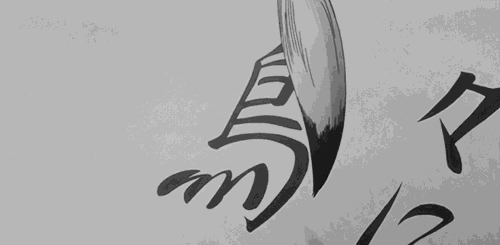Quiet forest, alone sitting in a thatched hut at dawn.
The śrāvaka of the Three Treasures is a bird.
A bird has the voice, people have the mind.
Voice and mind, clouds and streams. Together clear, clear.
According legend, Kūkai wrote this poem in the tranquility of Mount Kōya. The date of the poem is unknown. Late evening, hearing the Buddha-Dharma-Sagha (Buppōsō) bird (a title perhaps added later by Shinzei).
Beatrice Lane Suzuki explains in a footnote to her translation: “The Bu-po-so is a large bird found in the depths of forests in Japan, Korea, and China. It is sacred in Buddhism, for its song repeats the syllables bu-po-so: bu=butsu=Buddha; po=ho=Dharma=Law; so=Sangha=Brotherhood.” This bird, sometimes called Buppōsō, is a Broad Billed Roller (Eurystomus orientalis). The poem is filled with double meanings and implications of unity in duality. Dawn may have two implications. First, the poet has been up all night. Judging from the content of the poem, he has been engaged in meditation. Second, it may imply the dawn of something, i.e., being on the brink of enlightenment. Either way, as later with Basho’s frog leaping into the old pond, the sound of the bird ‘awakens’ the poet to the Dharma. Śrāvaka (聲聞) is literally ‘hearer of the voice,’ a euphemism for the disciples of the Buddha. Unsui (雲水) is a kakekotoba (double entendre) meaning both itinerant priest and clouds and water. Beatrice Lane Suzuki translates these last words (了了 , J. ryōryō) as “Express the Buddha-wisdom.” While this may be Kūkai’s intention, it is not his expression. He likely choose the words to sound like a bird, as he is fond of using or creating onomatopoetic word by doubling graphs at the end of his poems. The doubled graph, although a single two-graph compound in modern Chinese, also implies both are clear: the voice and the mind. The use of an animal in this poem is in character with Kūkai’s philosophy that the natural world is none other than Mahāvairocana, all phenomena is the Dharma. Note, along these lines, dogs lead Kūkai to the top of Mount Kōya. According to a series of notes in the KKZ, each line of the poem after Kūkai mentions the Three Treasures (the Buddha, the Dharma, and the Sagha) represents one of the Three Treasures. ‘A bird has the voice’ implies the Dharma (words of the Buddha); ‘People have the mind’ implies the Buddha-mind, ‘clouds and streams’ implies the Sangha.
